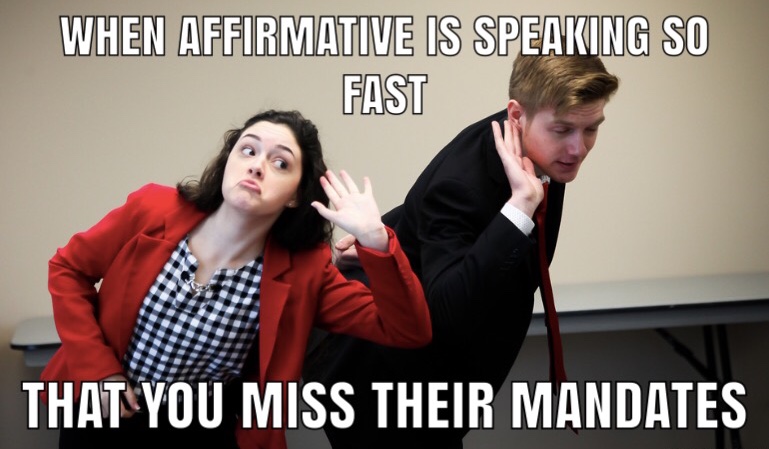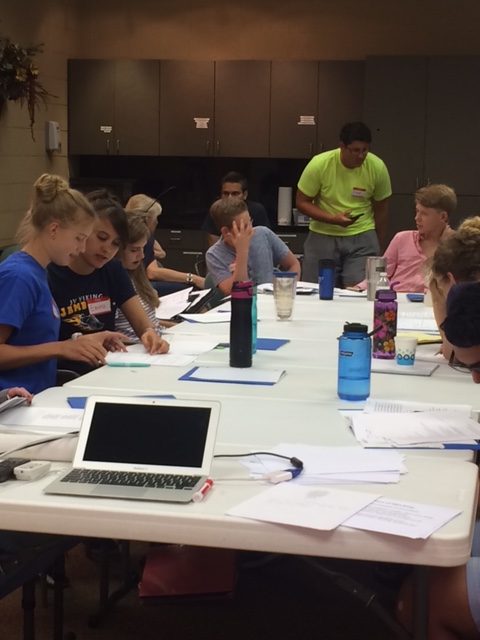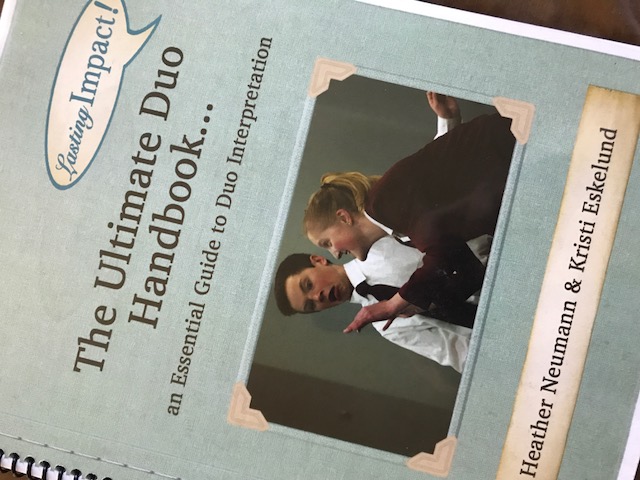Posts by Kristi Eskelund
A Challenge for those who attended Nationals…

During our Regional Championship tournament, I had a conversation with a student who said the most honest thing I’ve heard in a long while. I initiated the conversation because I work Communications at the tournaments and I could see the student was tense, frustrated, distressed even. When I asked about it, I got the usual response, “My speeches have gone so badly. I really wanted to do well so I could get to Nationals.” There is not a good response for this. I know all the correct things to say: Nationals isn’t the goal. You’ve grown so much. The trophies will fade. None of that matters in the moment of disappointment, so I said nothing and gave the student a hug. That was when it got real. Coming off that hug, the student said this:
“I want to be part of the friend group that goes to Nationals, and I’m not going to be… again.”
Continue reading “A Challenge for those who attended Nationals…”Cross X Series #4: Keys to Undermining your Opponent’s Case by: Samuel Hand
 CX designed to undermine your opponent’s case is a lot like CX designed to support your case, with two key differences: you don’t know what your opponent is running ahead of time, and the questions aren’t written beforehand (usually). Judging from these differences, you may think that you’re doomed to wait until you hear your opponent’s case and then pray you come up with something intelligent to ask… let me discourage this thinking. While you can have strokes of brilliance in the moment, just thinking a bit about the resolution can give an idea of what you might want to ask.
Much like I can’t tell you what questions to ask to support your debate cases specifically, I can’t know what your opponents are going to run. However, I can give you the keys (learned over the course of several years) to attacking your opponent’s case in CX.
Continue reading “Cross X Series #4: Keys to Undermining your Opponent’s Case by: Samuel Hand”
CX designed to undermine your opponent’s case is a lot like CX designed to support your case, with two key differences: you don’t know what your opponent is running ahead of time, and the questions aren’t written beforehand (usually). Judging from these differences, you may think that you’re doomed to wait until you hear your opponent’s case and then pray you come up with something intelligent to ask… let me discourage this thinking. While you can have strokes of brilliance in the moment, just thinking a bit about the resolution can give an idea of what you might want to ask.
Much like I can’t tell you what questions to ask to support your debate cases specifically, I can’t know what your opponents are going to run. However, I can give you the keys (learned over the course of several years) to attacking your opponent’s case in CX.
Continue reading “Cross X Series #4: Keys to Undermining your Opponent’s Case by: Samuel Hand”
Cross X Series #3: Solidifying your own Case by: Samuel Hand

You have an inherent advantage when writing questions to build up your own case: you know exactly what you’re running in said case. This means that, with proper guidance, you can know exactly what to ask. While I can’t tell you which questions to write for your specific case, I can give you some principles which will hopefully make those questions much easier to formulate. Before I do, though, let me tell you what not to do.
Continue reading “Cross X Series #3: Solidifying your own Case by: Samuel Hand”








